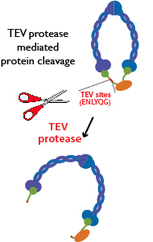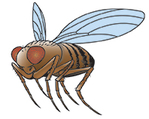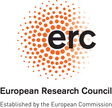WHAT WE DO
|
During cell division, the genetic information contained in the chromosomes needs to be equally distributed to the new cells that are formed. If the correct distribution of the genetic material is somehow impaired, cells may obtain an abnormal number of chromosomes or even break and loose significant parts of the genome. These abnormalities are usually associated with many health conditions, such as cancer development, genetic disorders and infertility. Our lab investigates how chromosomes are assembled and how their morphology influences the fidelity of cell division.
We are focused on three main questions:
OUR APPROACH

We use a multidisciplinary approach combining acute combining acute protein inactivation, 3D-live cell imaging and quantitative methods to probe for chromosome morphology and mitosis progression (see gallery). Our "acute approach" relies on a major technical advance that enables specific, rapid and efficient protein inactivation in a tissue- and/or time-dependent manner (see Pauli et al Dev Cell 2008 and Oliveira et al NCB 2010). This method uses an exogenous protease (Tobacco Etch Virus, TEV) to cleave an engineered protein of interest that contains TEV cleavage sites.

|
PUBLICATIONS
COLLABORATORS
FUNDING |






